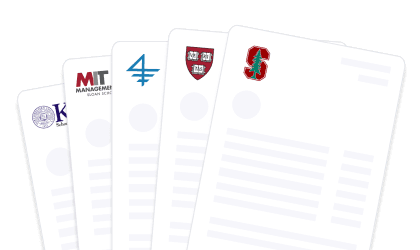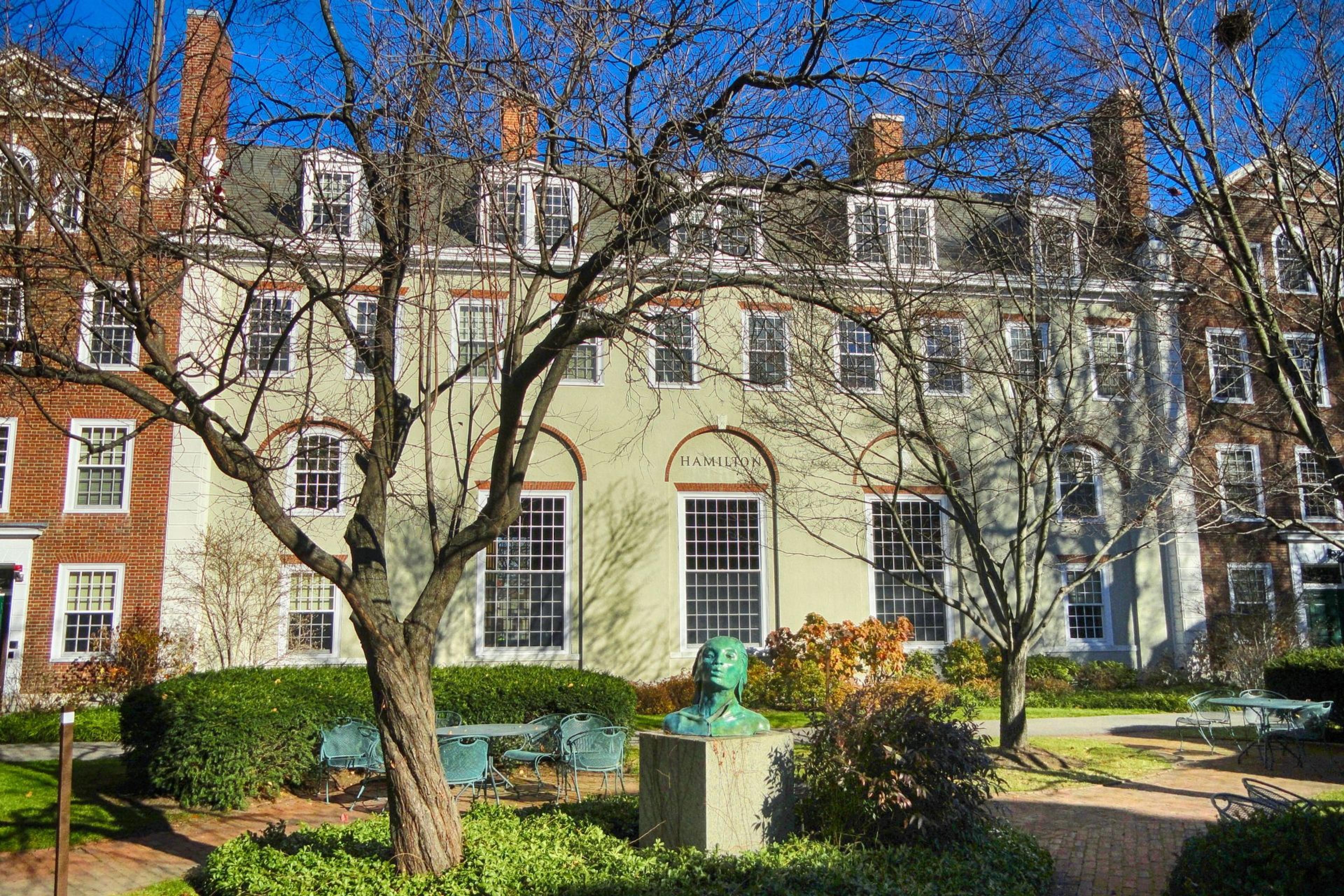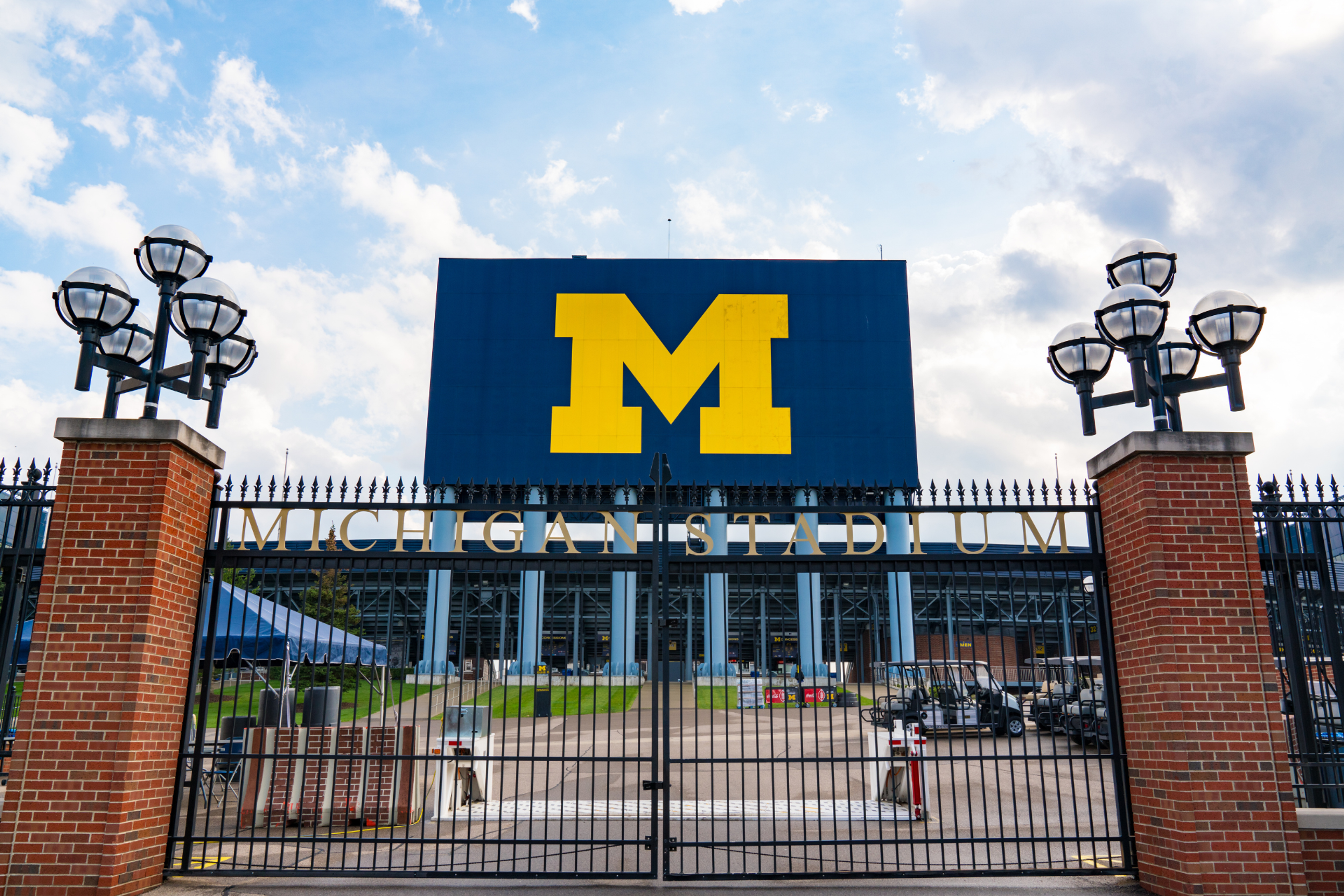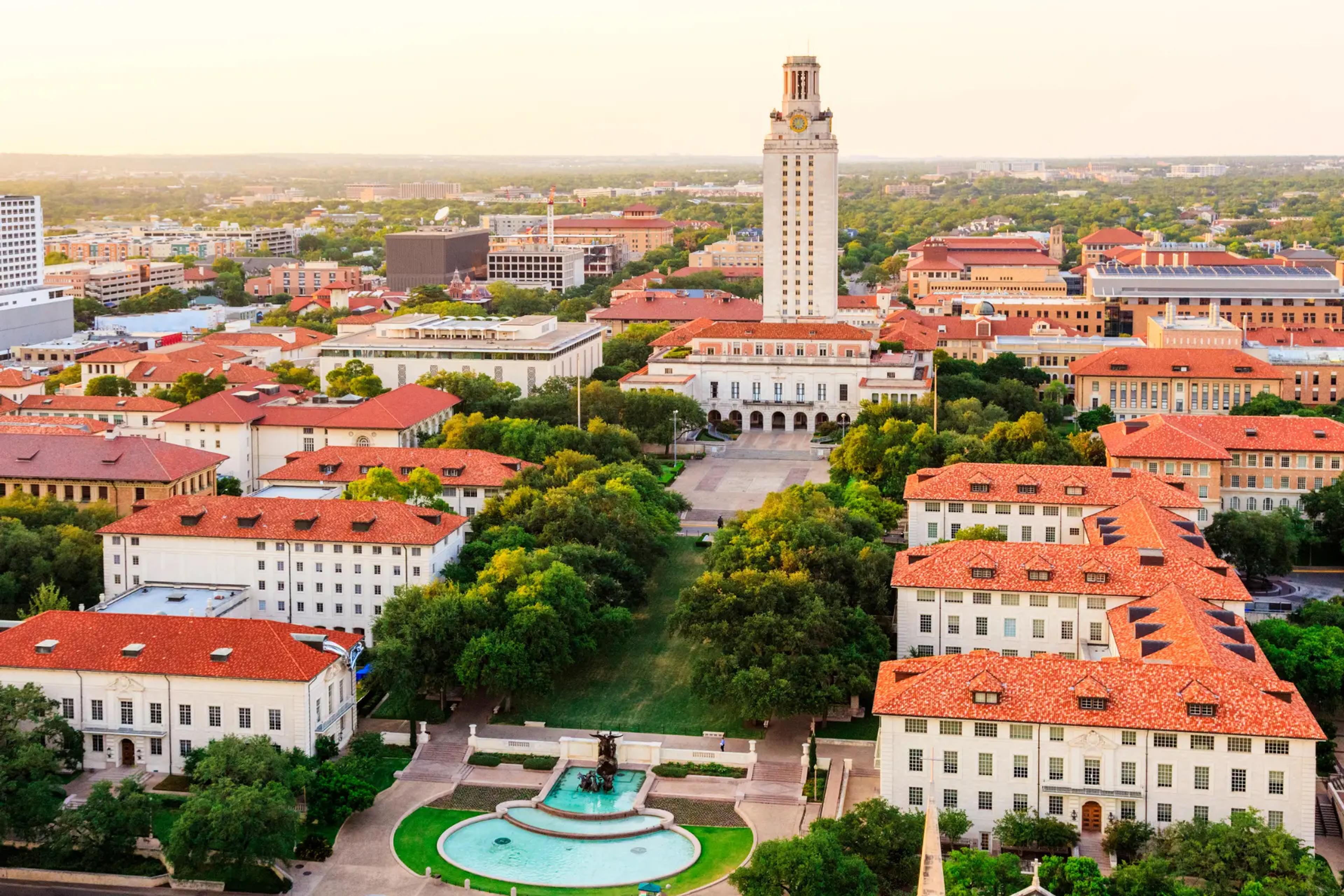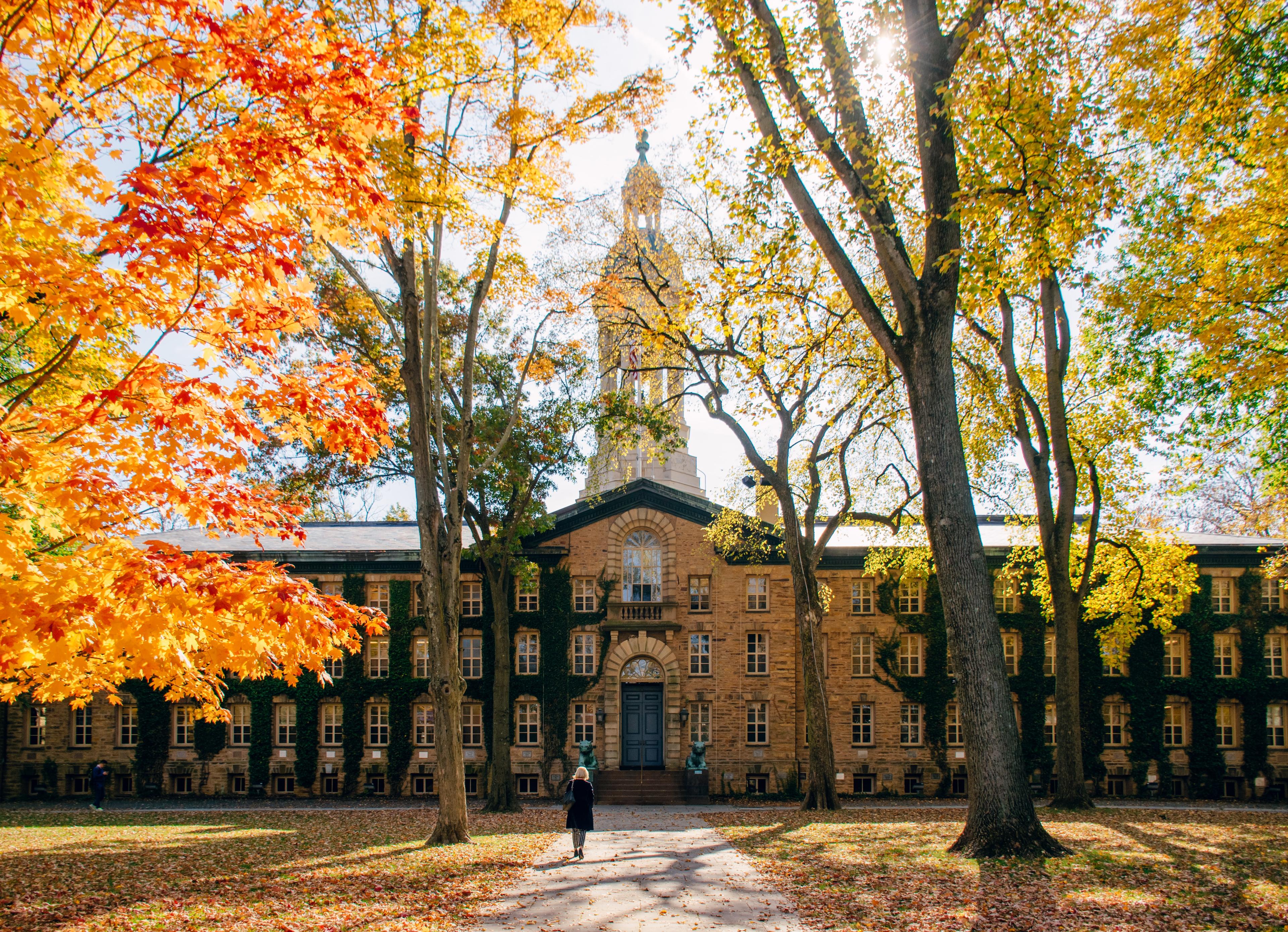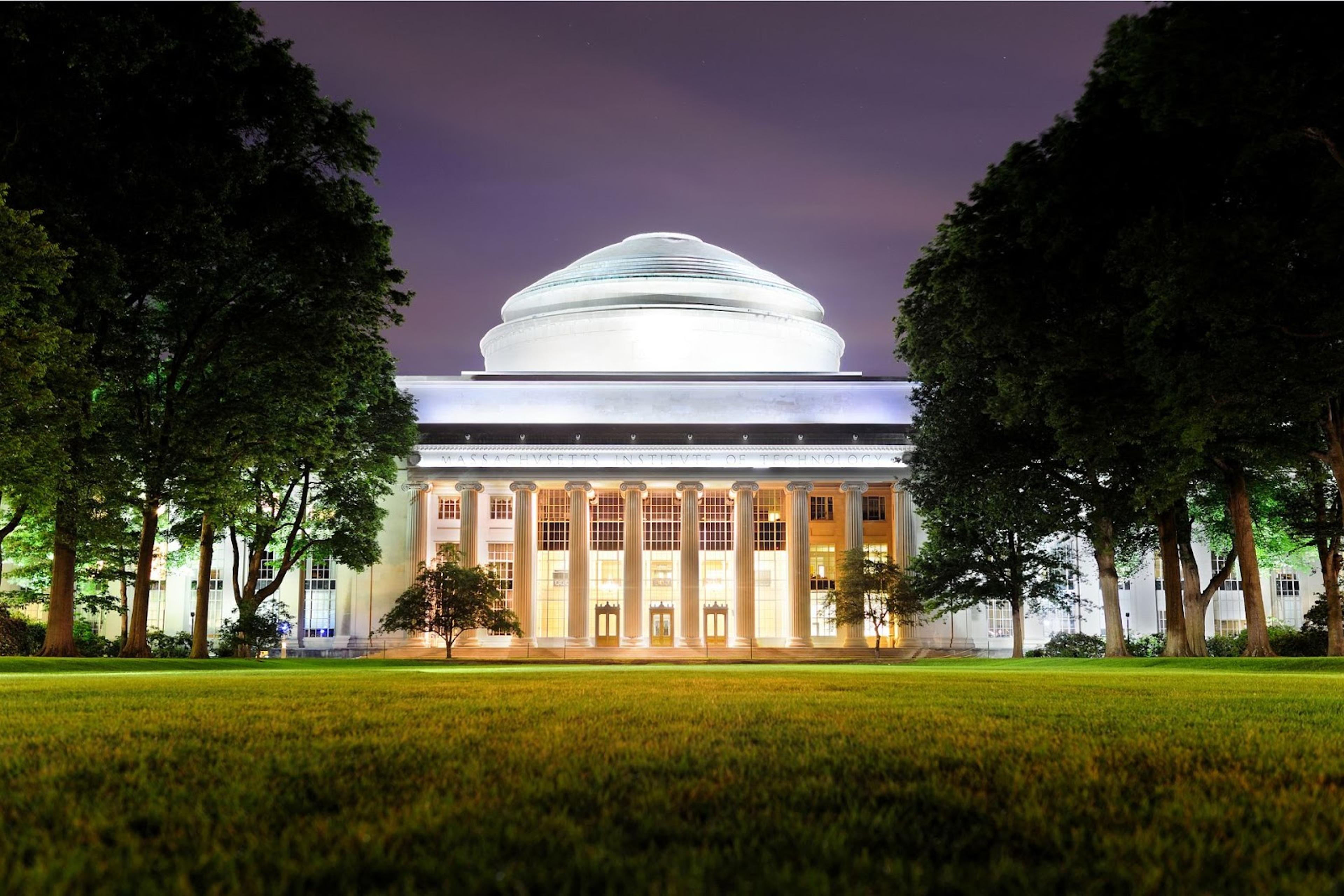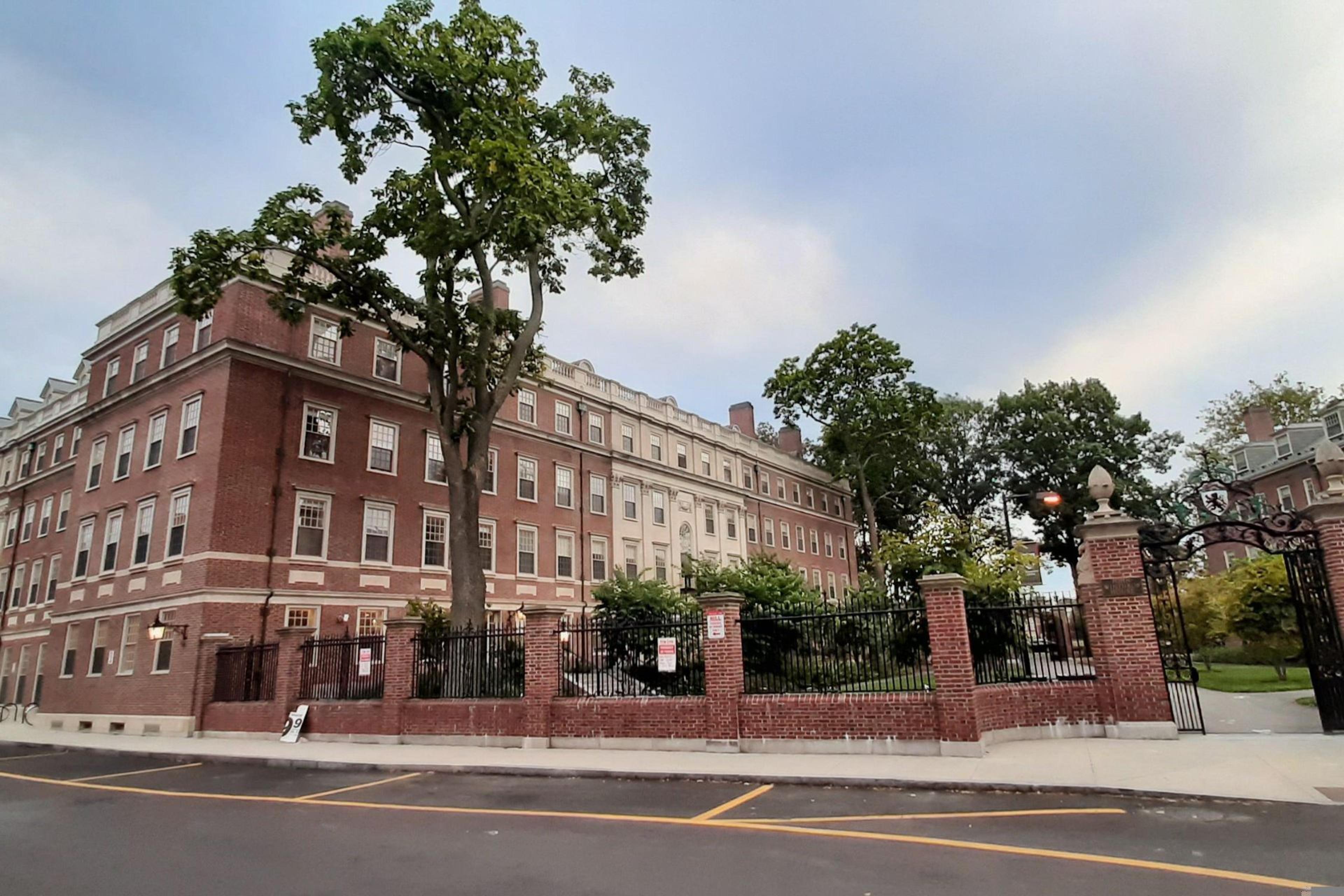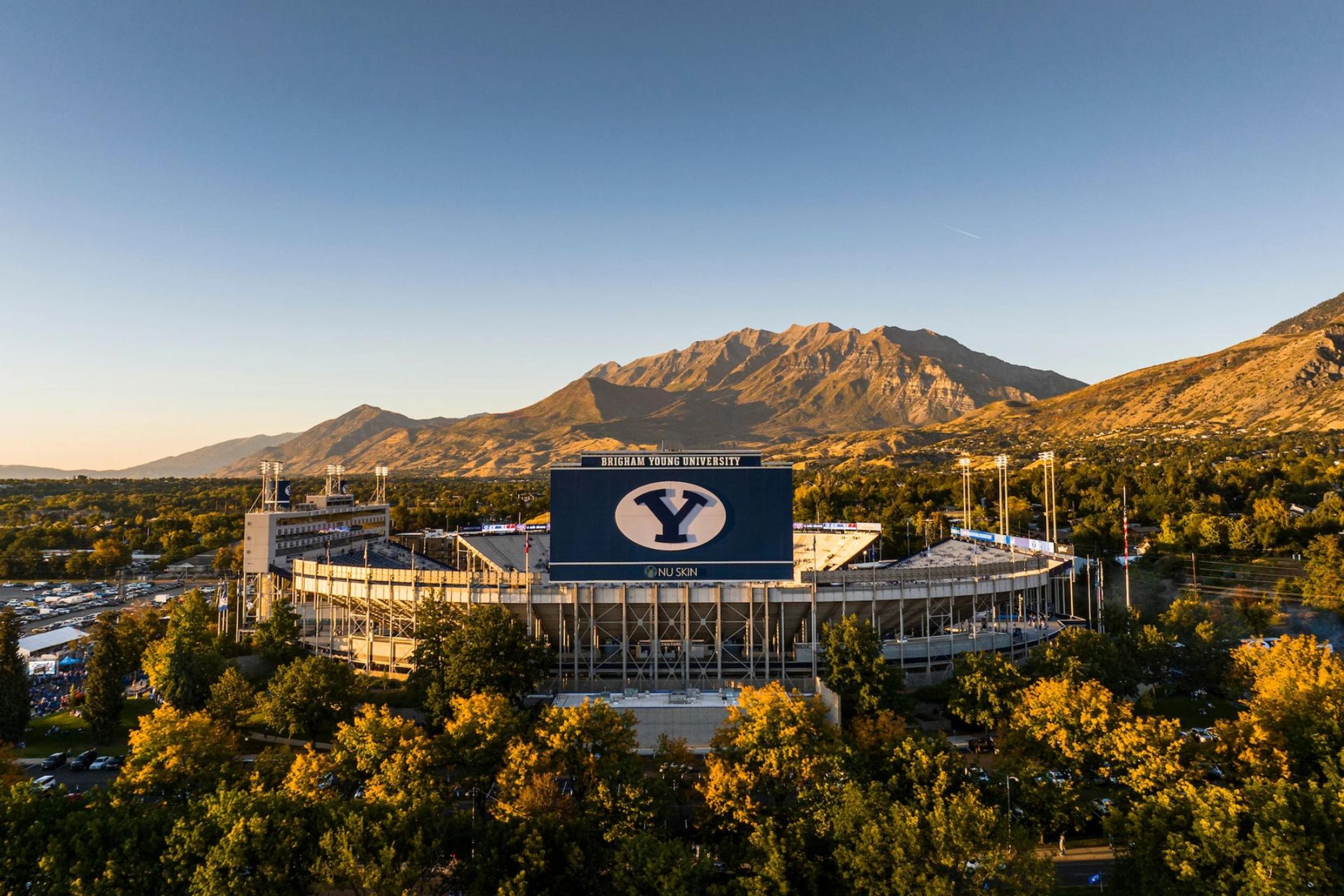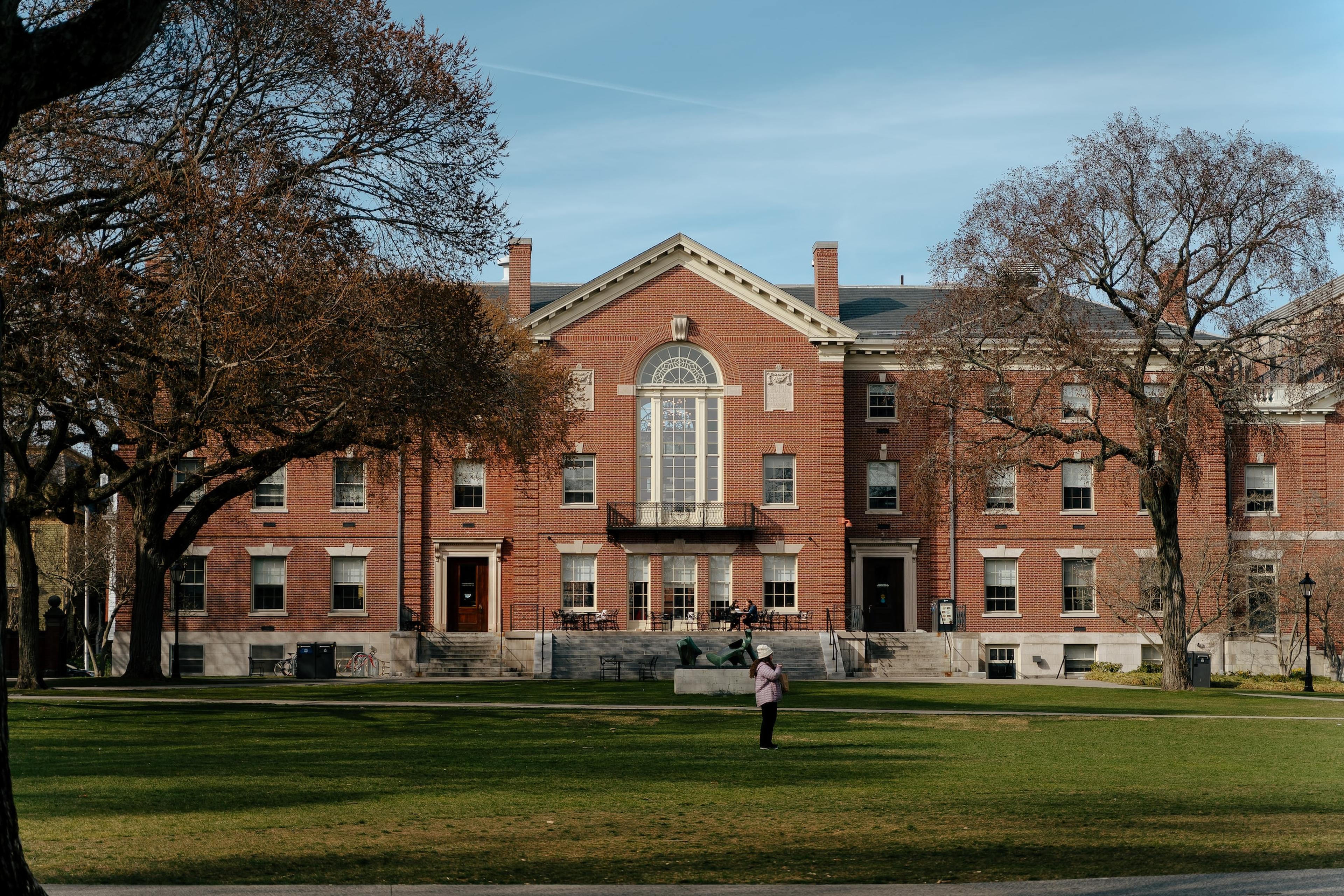
Join a free event
Learn from top coaches and industry experts in live, interactive sessions you can join for free.
Table of Contents
When it comes to Ivy League schools, there's no denying that they're considered some of the best colleges and universities in the world. They have a reputation for academic excellence, prestigious alumni networks, and fantastic career prospects. If you're interested in attending these schools and want to know how to get in, this guide will provide you with all the information you need to succeed.
What are the Ivy League Schools?
Let's start with the basics. The Ivy League was originally established as an athletic conference consisting of eight prestigious private colleges and universities located in the northeastern United States. The Ivy League schools include:
- Brown University
- Columbia University
- Cornell University
- Dartmouth College
- Harvard University
- Princeton University
- University of Pennsylvania
- Yale University
These schools are highly selective and competitive, with acceptance rates typically ranging from 3-15%. All eight Ivy League schools are regularly ranked among the top universities in the world. However, don't let those numbers discourage you from trying. The Ivy League is looking for talented and passionate students who are eager to learn and make an impact on the world.
It's important to note that while the Ivy League schools are known for their academic excellence, they also have strong athletic programs. In fact, the Ivy League is the only NCAA Division I conference that does not offer athletic scholarships. This means that student-athletes are admitted based on their academic and athletic abilities, rather than receiving financial aid for their athletic performance. The Ivy League schools also have a long-standing tradition of intense rivalries, particularly in football and basketball.
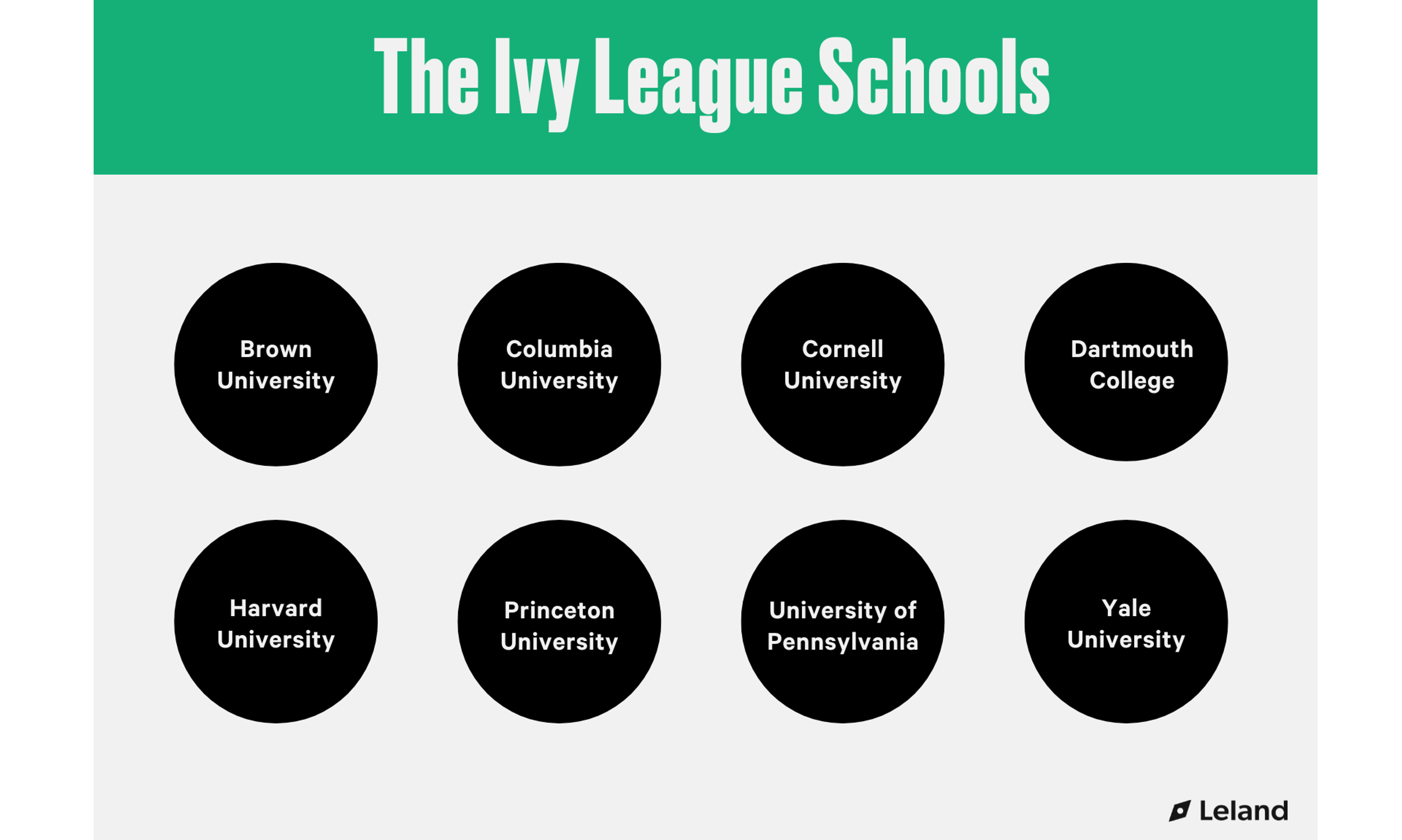
The Ivy Plus Schools
The term "Ivy League Plus" refers to an elite group of universities that extends beyond the traditional Ivy League, encompassing additional prestigious institutions known for their academic excellence, selectivity in admissions, and significant social and professional networks. The schools usually included in the listing of Ivy Plus include:
- Stanford University
- Massachusetts Institute of Technology
- University of Chicago
- Northwestern University
- Duke University
The Public Ivies
In addition to the Ivy Plus, there is also what's known as the "Public Ivies." As the name suggests, these are the public universities consistently ranked as the best in the world. These schools are often significantly more affordable, especially for those within the same state. The schools included in this listing usually include:
- UC Berkeley
- UCLA
- UT Austin
- University of Virginia
- UNC-Chapel Hill
- University of Michigan-Ann Arbor
History of the Ivy League
Origin of the Term "Ivy League"
The term "Ivy League" comes from the phrase "planting the ivy," which refers to a common ceremony that took place at several universities in the 1800s. Graduating seniors on "Class Day" (the day they graduated) would sow an ivy plant somewhere on the grounds. At Harvard, this was accompanied by the "ivy oration" and a "dance on the green." At the University of Pennsylvania, the practice was formally recognized as "Ivy Day" in 1874 and it's a tradition that remains today. Now, Ivy Day usually refers to the day that admissions decisions are released. The first known use of the term "Ivy League" in reference to the conglomeration of schools was in an edition of The Christian Science Monitor on February 7, 1935.
The Founding of the Ivy League Schools
Seven of the eight Ivy League schools were founded prior to the American Revolution and are often referred to as Colonial Colleges because they were the main institutions of higher learning when Britain controlled the American colonies. Cornell is the exception to this and it was founded immediately after the American Civil War. Most of the Ivy League schools were founded by Protestants–Harvard, Yale, and Dartmouth by Congregationalists; Princeton by Presbyterians; and Brown by Baptists.
Origin of the Ivy League as an Athletic League
The first formal athletic league that involved Ivy League schools was the Rowing Association of American Colleges, founded in 1870 to govern college rowing. From then, the schools competed in a variety of athletic tournaments with each other, including rugby, cricket, and basketball, among others. However, it wasn't until 1945 that the presidents of all eight schools signed the first "Ivy Group Agreement", the purpose of which was to set academic, financial, and athletic standards.
Deep-Dive Into the Ivy League Schools
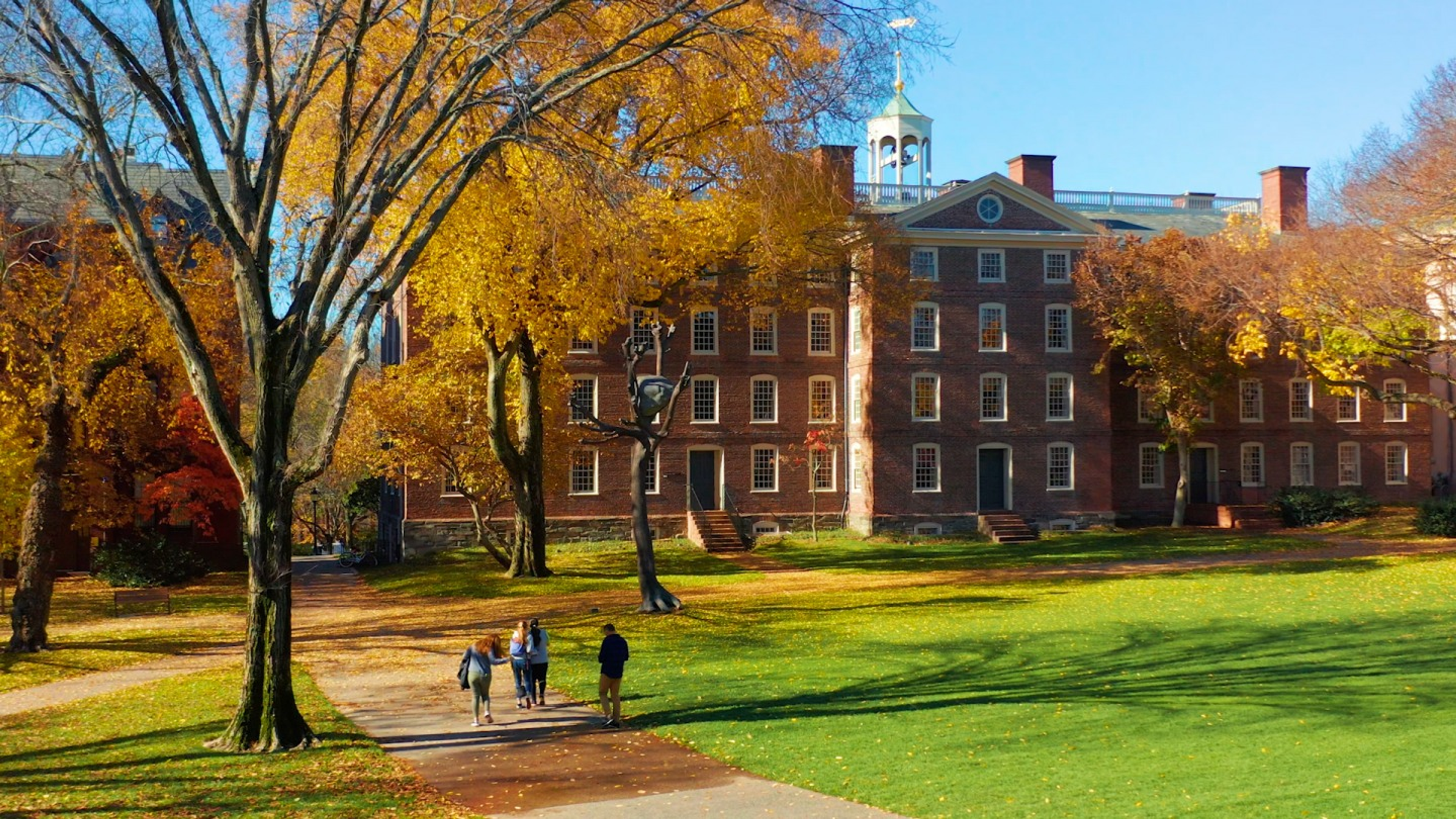
Brown University
Fast Facts:
- Founded: 1764
- Location: Providence, Rhode Island
- Mascot: Bears
- Colors: Brown, Red, White
- Endowment: $6.6 Billion
- # of Total Students: 10,737
- US News Ranking: #9
Admissions Overview:
- Acceptance Rate: 5%
- SAT Middle 50%: 1510-1570
- ACT Middle 50%: 34-36
- Students in Top 10% of Graduating Class: 95%
Brown University stands out for its unique open curriculum that emphasizes student-driven learning and interdisciplinary education, allowing students to tailor their academic experiences. The school is renowned for its world-class faculty, research opportunities, and commitment to social justice and community engagement. With a rich legacy of fostering innovation and critical thinking, Brown attracts students from around the globe. It not only contributes significantly to the Ivy League's reputation for academic excellence but also actively promotes an inclusive environment, making it a sought-after choice for students who value intellectual freedom and societal impact.
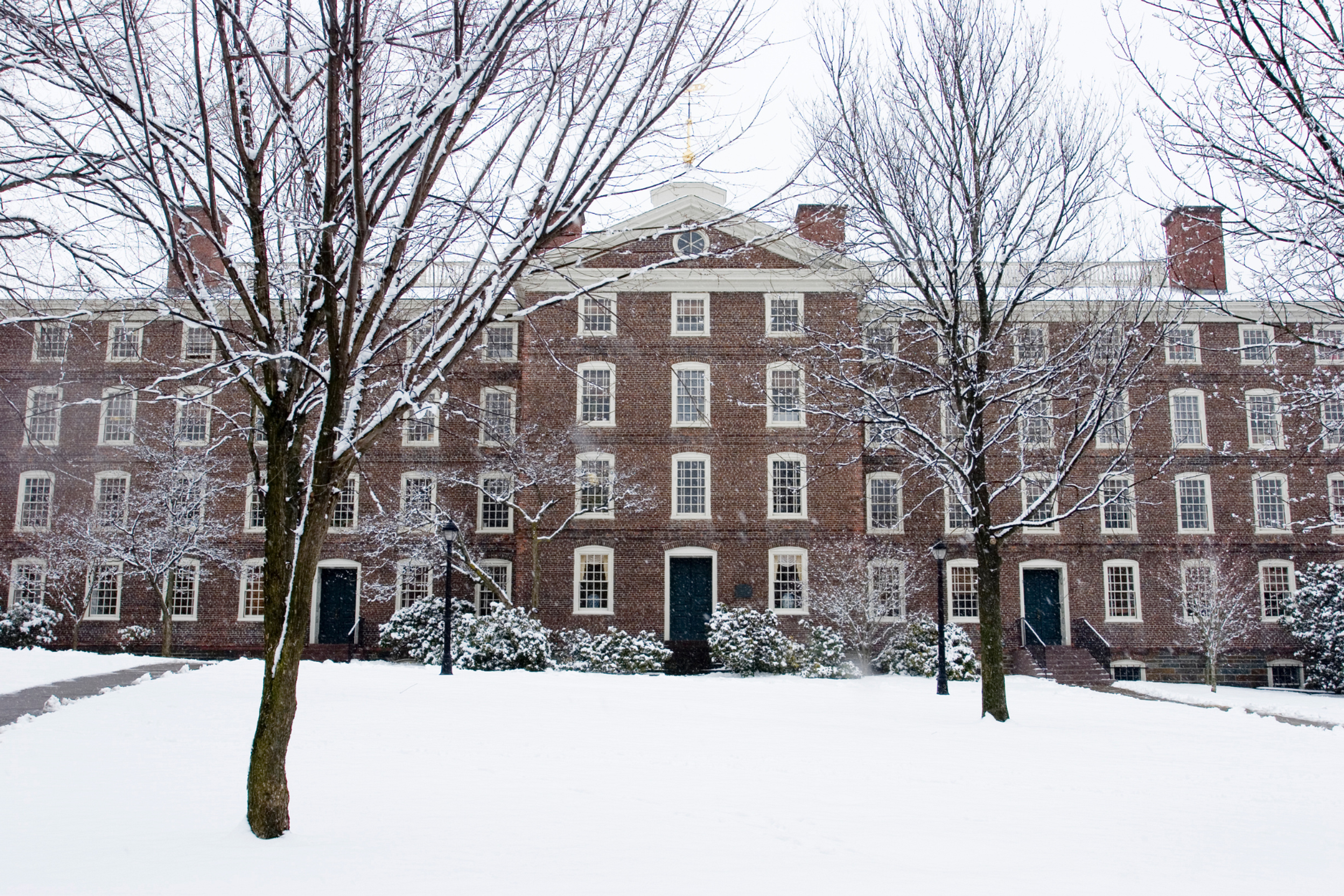
Columbia University
Fast Facts:
- Founded: 1754
- Location: New York, NY
- Mascot: Lions
- Colors: Blue, White
- Endowment: $13.64 Billion
- # of Total Students: 36,649
- US News Ranking: #12 (tied)
Admissions Overview:
- Acceptance Rate: 3.9%
- SAT Middle 50%: 1510-1560
- ACT Middle 50%: 34-35
- Students in Top 10% of Graduating Class: 95%
Columbia University is a beacon of academic excellence and innovation within the Ivy League. Esteemed for its rigorous scholarship and pioneering research, Columbia stands out with its unique Core Curriculum, a set of common courses required for all undergraduates, designed to instill critical thinking and a broad understanding of human civilization. Home to the Pulitzer Prizes, Columbia has a storied history of intellectual leadership, boasting numerous Nobel laureates among its faculty and alumni. The university's urban campus in Manhattan offers unparalleled access to cultural, professional, and experiential opportunities, making it an ideal environment for students who seek to influence global discourse and innovation. Columbia's commitment to diversity, its position at the nexus of global thought leadership, and its dynamic integration with the city of New York underscore its unique role in shaping the leaders of tomorrow.
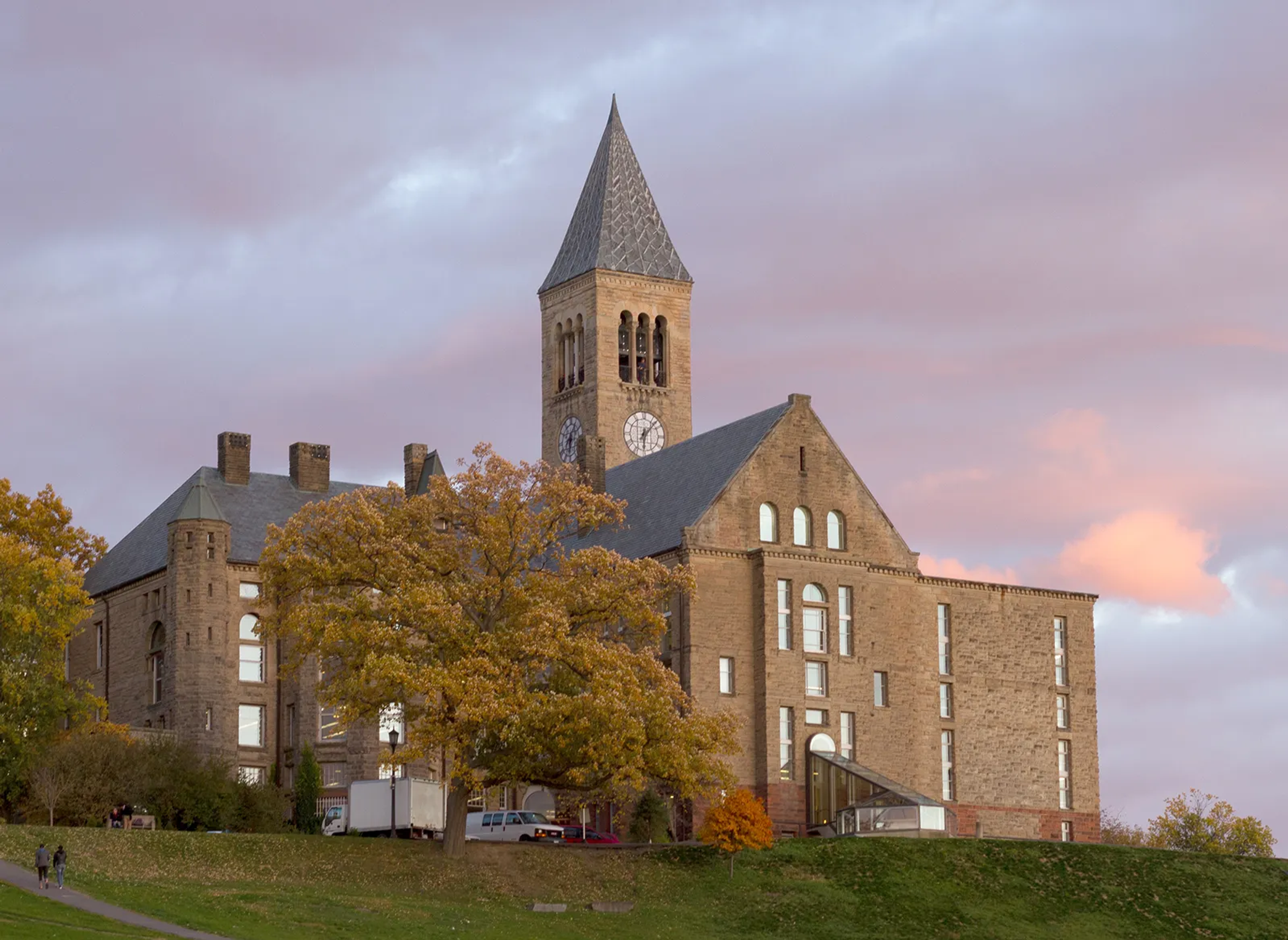
Cornell University
Fast Facts:
- Founded: 1865
- Location: Ithaca, NY
- Mascot: Big Red
- Colors: Red, White, Gray
- Endowment: $10 Billion
- # of Total Students: 26,284
- US News Ranking: #12 (tied)
Admissions Overview:
- Acceptance Rate: 7.3%
- SAT Middle 50%: 1470-1550
- ACT Middle 50%: 33-35
Cornell University distinguishes itself within the Ivy League through its unparalleled combination of liberal arts education and practical, hands-on learning, exemplified by its state-of-the-art facilities and leading research centers. Unique among its Ivy peers, Cornell operates both privately endowed and state-supported units, reflecting its commitment to public service and outreach, particularly in fields such as agriculture, labor relations, and veterinary medicine. Cornell's emphasis on interdisciplinary research and global learning opportunities prepares students for leadership in a rapidly changing world, making it a powerhouse of knowledge that transcends traditional academic boundaries. Its dynamic campus culture fosters a spirit of collaboration and discovery, setting Cornell apart as an institution that not only contributes to academic excellence but also addresses real-world challenges.
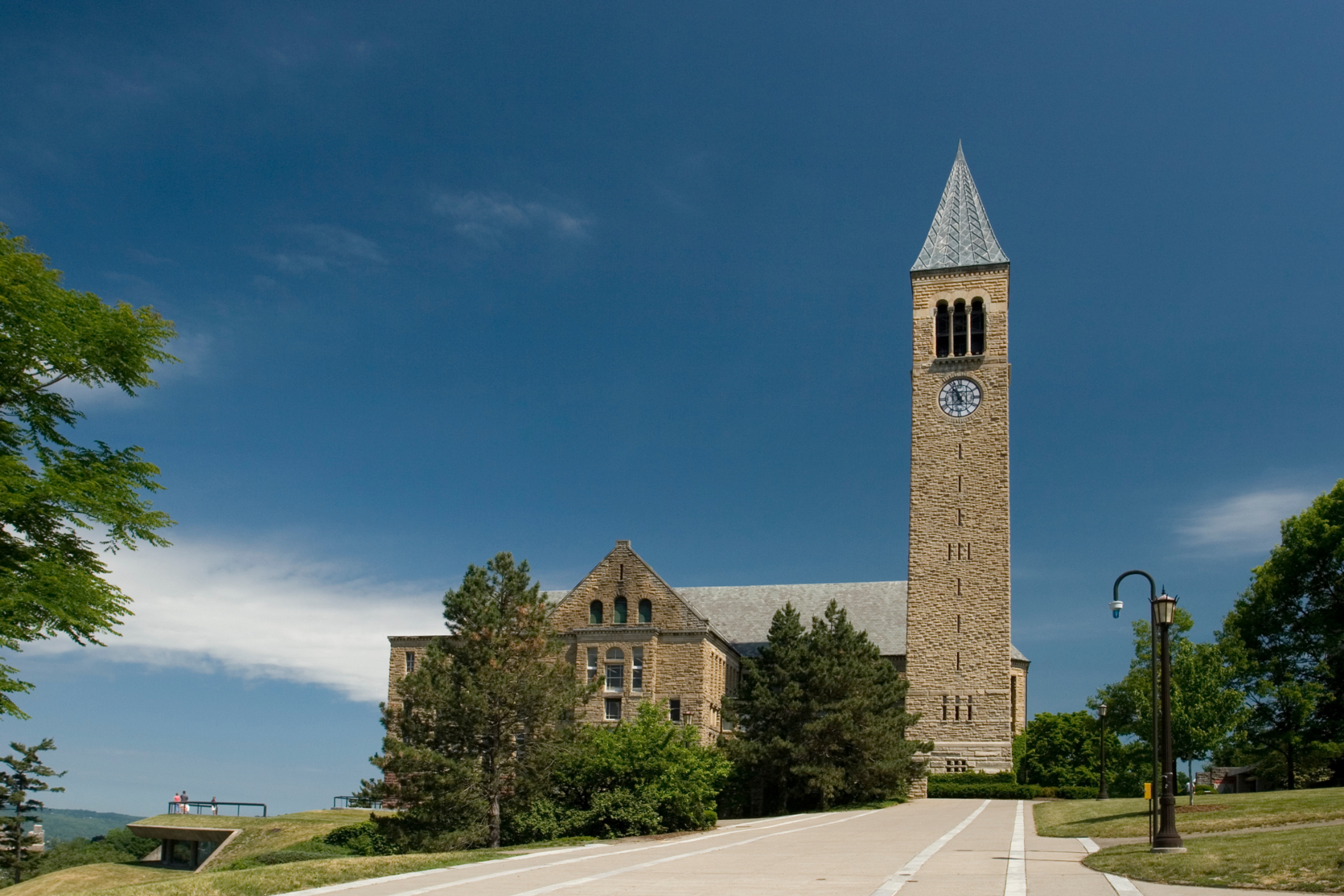
Dartmouth College
Fast Facts:
- Founded: 1769
- Location: Hanover, New Hampshire
- Mascot: Big Green
- Colors: Green, White, Black
- Endowment: $7.9 Billion
- # of Total Students: 6,761
- US News Ranking: #18 (tie)
Admissions Overview:
- Acceptance Rate: 6.2%
- SAT Reading/Writing Middle 50%: 710-770
- SAT Math Middle 50%: 730-790
- ACT Middle 50%: 32-35
- Students in Top 10% of Graduating Class: 95%
Dartmouth College stands out in the Ivy League for its strong emphasis on undergraduate education, offering a personalized and deeply engaging academic experience in a close-knit community environment. Renowned for its pioneering D-Plan, a flexible quarter-based academic calendar, it enables students to customize their educational journey, blending rigorous classroom learning with global internships and research opportunities. Dartmouth's commitment to providing a holistic education is reflected in its first-rate faculty, who are not only leaders in their fields but also dedicated mentors, fostering a culture of accessibility and collaborative learning. With a legacy of producing graduates who are not only academically accomplished but also globally aware and socially responsible, Dartmouth embodies a unique blend of tradition, innovation, and community engagement.
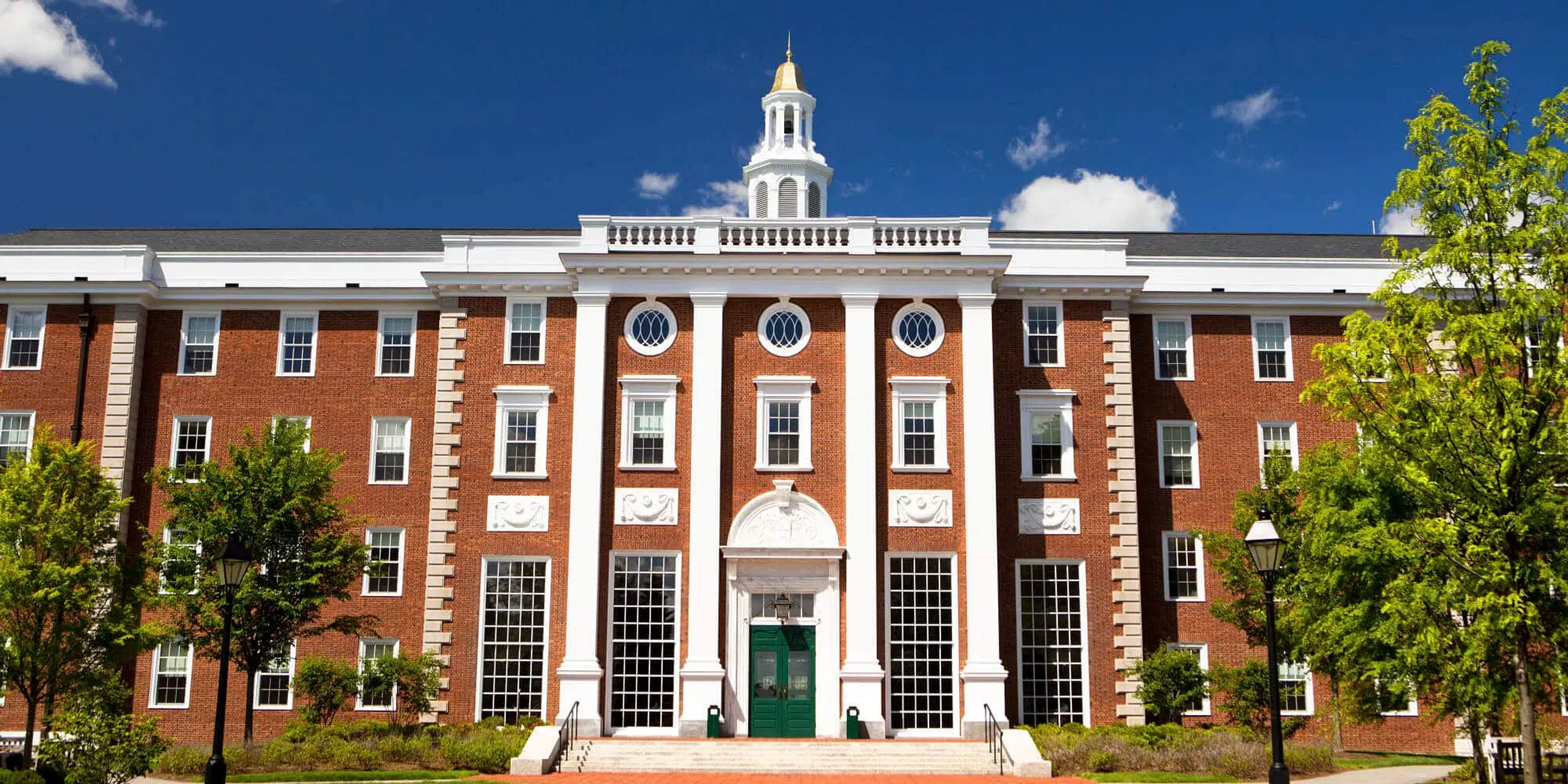
Harvard University
Fast Facts:
- Founded: 1636
- Location: Cambridge, Massachusetts
- Mascot: Crimson
- Colors: Crimson, Red, White
- Endowment: $50.7 Billion
- # of Total Students: 25,266
- US News Ranking: #3
Admissions Overview:
- Acceptance Rate: 3.41%
- Average SAT Score: 1515
- Average ACT Score: 34
Harvard University, a luminary in the Ivy League constellation, is celebrated for its unparalleled legacy of shaping global leaders and innovators across various fields. Harvard's unique draw includes its extensive library system, the largest academic library in the world, providing an unrivaled reservoir of knowledge for researchers and students alike. The university boasts a myriad of research institutes and centers, fostering groundbreaking discoveries and interdisciplinary collaboration. With a distinguished faculty that includes multiple Nobel laureates, Pulitzer Prize winners, and field pioneers, Harvard offers an academic experience that blends deep intellectual rigor with real-world application. Its robust network of alumni spans the globe, creating an influential community that impacts every sector of society. Harvard's commitment to excellence, its role as a thought leader in countless disciplines, and its cultivation of a vibrant, diverse academic community make it a beacon of education and innovation, setting it apart as a premier institution within the Ivy League.
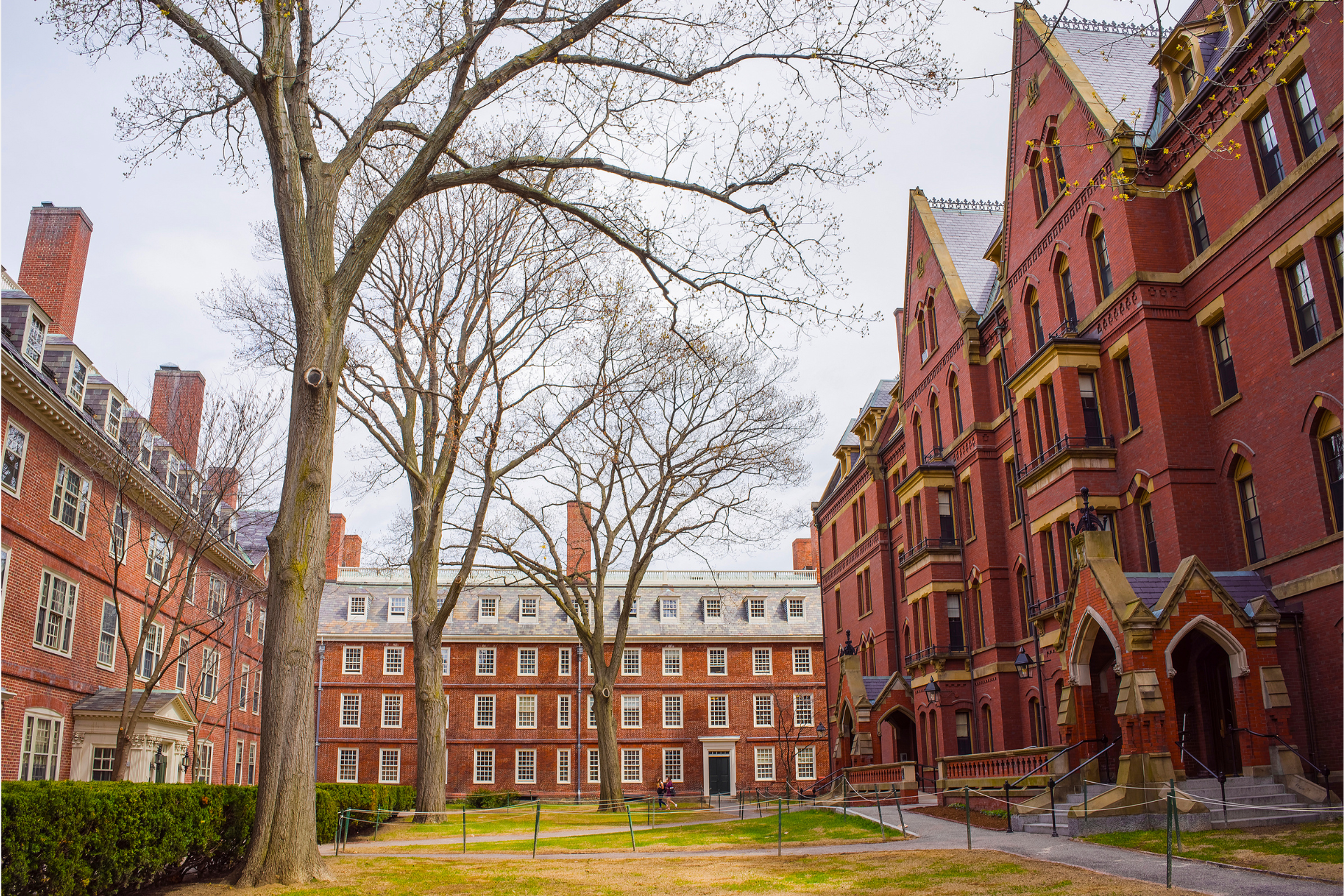
Princeton University
Fast Facts:
- Founded: 1746
- Location: Princeton, New Jersey
- Mascot: Tigers
- Colors: Orange, Black
- Endowment: $34.1 Billion
- # of Total Students: 8,802
- US News Ranking: #1
Admissions Overview:
- Acceptance Rate: 5.82%
- SAT Reading/Writing Middle 50%: 760-780
- SAT Math Middle 50%: 780-800
- ACT Middle 50%: 34-35
Princeton University differentiates itself within the Ivy League with a profound commitment to undergraduate education, pairing a liberal arts college's close faculty interaction with the resources of a leading research institution. Princeton is distinct for its residential college system, which fosters a tight-knit community atmosphere, and its "no-loan" financial aid policy, ensuring that grants cover all demonstrated need, which allows students to graduate debt-free. The university's unique senior thesis requirement embodies its dedication to independent, original research, pushing undergraduates to new intellectual heights. Additionally, Princeton's emphasis on interdisciplinary learning is evident through its numerous interdisciplinary programs and centers, encouraging students to explore beyond traditional departmental boundaries. This educational philosophy not only cultivates a deeply engaged academic community but also prepares students for leadership roles in a wide array of fields.
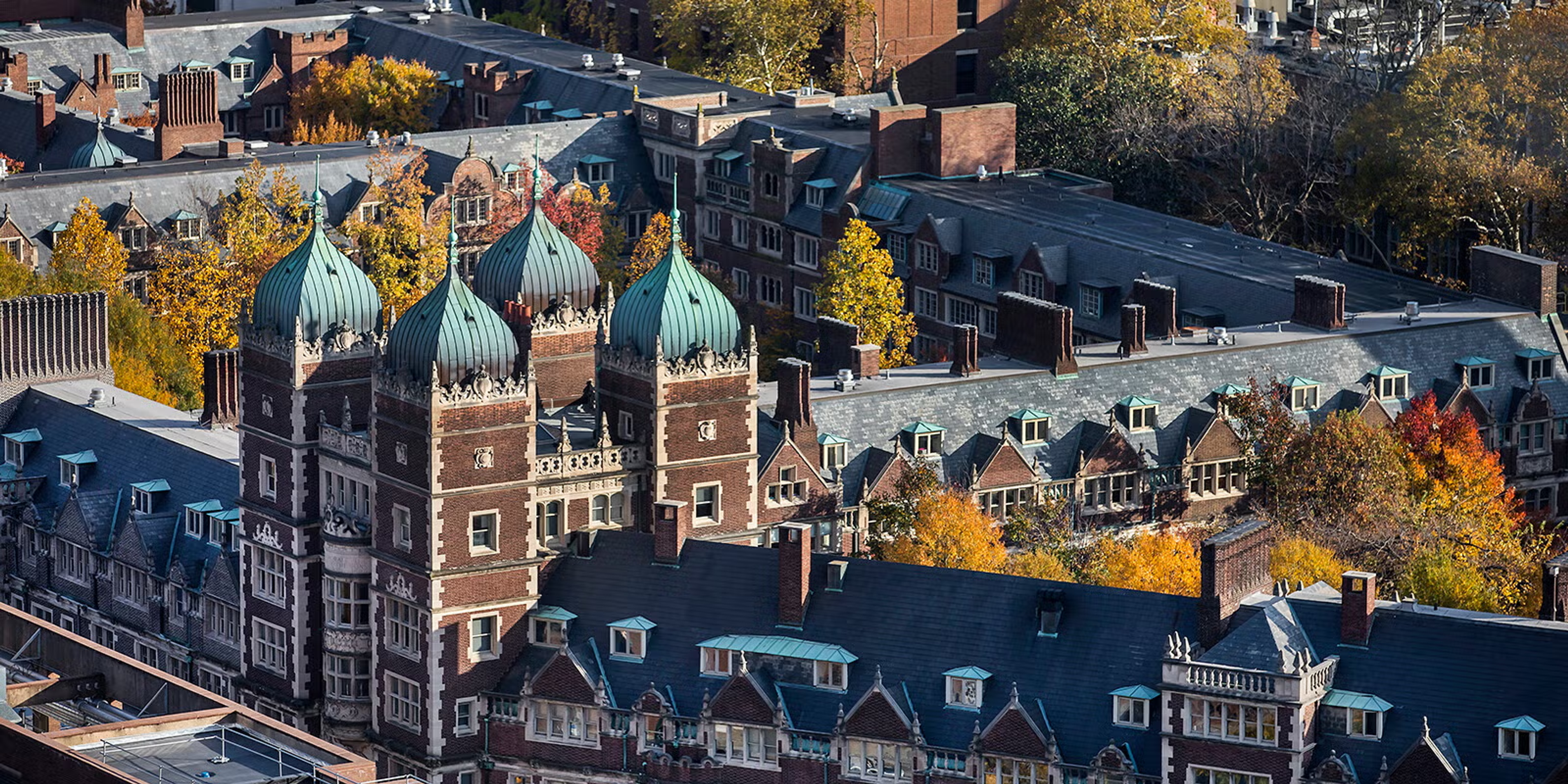
University of Pennsylvania
Fast Facts:
- Founded: 1740
- Location: Philadelphia, Pennsylvania
- Mascot: Quakers
- Colors: Red, Blue
- Endowment: $21 Billion
- # of Total Students: 28,711
- US News Ranking: #6
Admissions Overview:
- Acceptance Rate: 5.59%
- SAT Reading/Writing Middle 50%: 740-770
- SAT Math Middle 50%: 770-800
The University of Pennsylvania (Penn) sets itself apart in the Ivy League with its interdisciplinary approach, exemplified by the integration of knowledge across its four undergraduate and twelve graduate schools. Unique to Penn is the Wharton School, the first collegiate business school, which has garnered global acclaim for its leadership in business education and research. Penn's emphasis on cross-disciplinary studies is further highlighted by its innovative One University Policy, allowing students to take courses across all schools, fostering an environment of holistic learning and innovation. The university's strong ties to the medical and technological research communities are embodied in its pioneering work at the Perelman School of Medicine and the School of Engineering and Applied Science. Penn's commitment to civic engagement and social impact is evident through its extensive community service programs and the Penn Compact 2020, aiming to enhance social responsibility among its students.
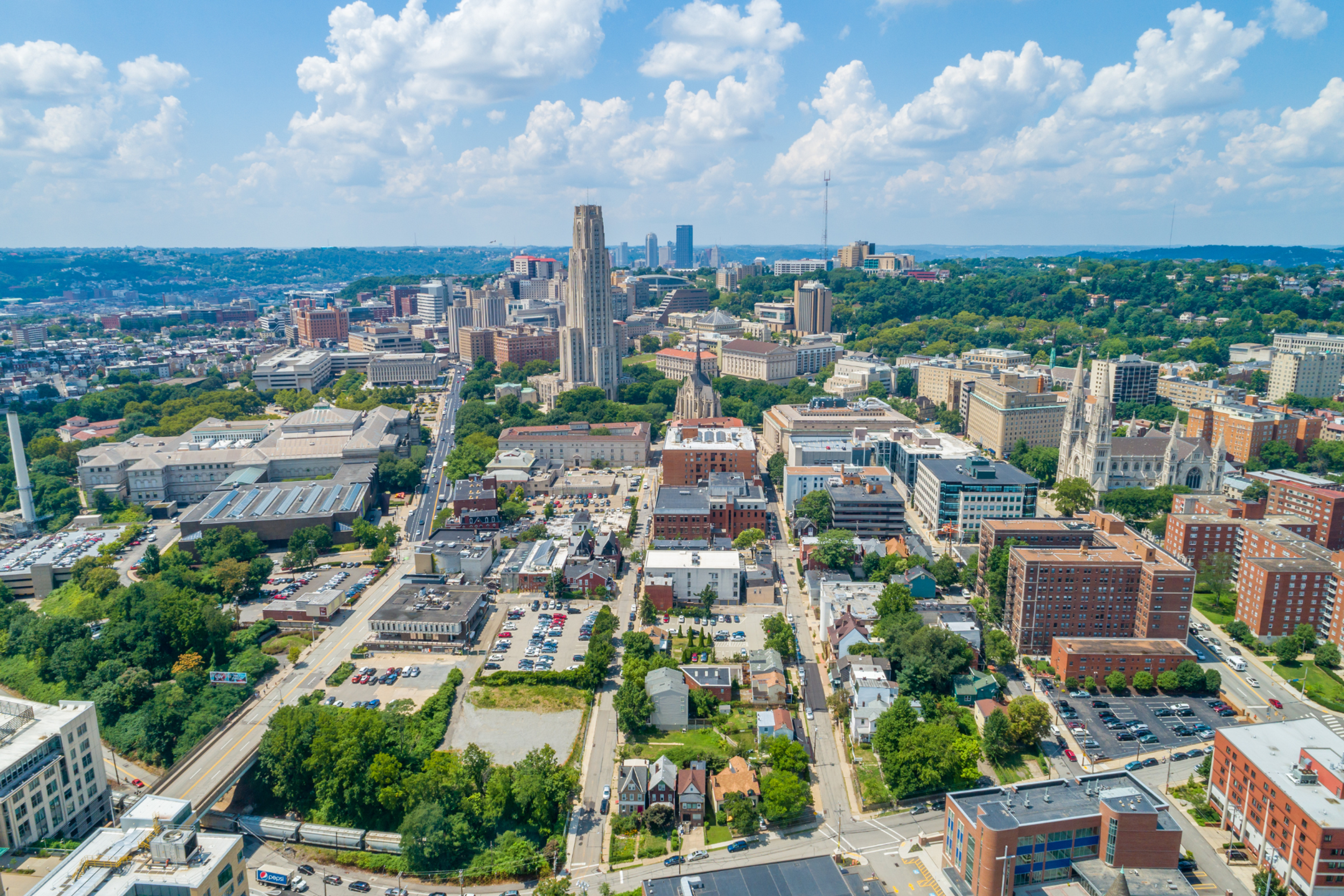
Yale University
Fast Facts:
- Founded: 1701
- Location: New Haven, Connecticut
- Mascot: Bulldogs
- Colors: Blue, White, Gray
- Endowment: $40.7 Billion
- # of Total Students: 11,934
- US News Ranking: #5
Admissions Overview:
- Acceptance Rate: 4.35%
- SAT Reading/Writing Middle 80%: 680-790
- SAT Math Middle 80%: 690-800
- ACT Middle 80%: 31-36
Yale University distinguishes itself within the Ivy League through its rich tradition of academic excellence and a unique residential college system, creating a close-knit community that enhances student life and learning. Renowned for its world-class arts programs, Yale boasts the first and one of the most respected university art galleries in America, alongside its acclaimed schools of Drama, Music, and Architecture, fostering a vibrant cultural scene on campus. Yale's commitment to a comprehensive liberal arts education is embodied in its rigorous Yale College curriculum, encouraging students to explore a broad spectrum of disciplines and think critically about the world around them. The university is also known for its extensive global connections and opportunities for international study, including a vast array of fellowships and programs abroad. With a legacy of producing leaders and innovators across fields, Yale emphasizes combining tradition with innovation, community engagement, and global perspective.
Life on an Ivy League Campus: What to Expect
Life on an Ivy League campus can be challenging, but also incredibly rewarding. You'll be surrounded by a diverse community of students and faculty who are passionate about learning and making an impact on the world. At an Ivy League, you'll have access to world-class resources, including state-of-the-art technology, cutting-edge research facilities, and a vast network of alumni who can help you jumpstart your career. You'll also have the opportunity to engage in extracurricular activities, including sports, clubs, and volunteering opportunities.
At the end of the day, an Ivy is still a college. Much of the actual day-to-day experience will be similar to other universities. Here are some of what you can expect in different aspects of the university experience at an Ivy League school:
Academic Rigor:
Ivy schools are difficult to get into for a reason - smart, motivated students are admitted and the professors are some of the best in the world, so classes will require critical thinking, creativity, and a strong work ethic. They will be tough, but also exciting and world-class.
Community:
The students admitted to the Ivy schools come from all around the world. For example, over 15% of the most recent entering class at Harvard was international; Princeton's entering class included students from over 64 countries. This diverse student body leads to broader perspectives within the classroom, a more inclusive community across the campus, and a wide network of people to learn from and with.
Professors:
One of the primary benefits of attending an elite, highly selective and competitive school is that classes are smaller so you have a greater proximity to professors than you would at other schools. The faculty-to-student ratio at Brown is 6:1, and Dartmouth says that the majority of its classes have 20 or fewer students. On top of that, the professors in those small, intimate classes are some of the greatest thinkers in their fields.
Extracurriculars:
At any Ivy, you will have access to at least the same number of extracurriculars and athletics as any other university. The Princeton Tigers, for example, have 12 NCAA team championships and the Columbia Lions are right behind them with 11, followed by the Brown Bears with 7 (up until 2017).
Campus:
Many Ivy League schools have a system of residential colleges or dormitories that foster a sense of community and belonging. These living spaces often provide their own social events, academic advising, and support systems. Ivies are also known for their long-standing traditions (like Ivy Day). For example, there is an annual Harvard-Yale football game, hosted by Yale in odd-numbered years and Harvard in even-numbered. This is a rivalry that goes back to 1875.
The Benefits of Attending an Ivy League School for Your Career
One of the main reasons students choose to attend an Ivy is its impact on their career. These schools have a strong and storied reputation for producing alumni who go on to have incredibly successful careers. For example, Princeton's alumni include Jeff Bezos, Woodrow Wilson, Michelle Obama, F. Scott Fitzgerald, and Alan Turing, among many other notable graduates. 16 of the 45 US presidents so far have attended an Ivy; most recently, that includes Donald Trump (Penn), Barack Obama (Columbia/Harvard Law), George W. Bush (Yale/HBS), and Bill Clinton (Yale Law).
Graduates from Ivy League schools have access to top employers and job opportunities, as well as a vast network of alumni who can provide mentorship and guidance. They're also well-prepared for graduate school and other academic pursuits if that's something that interests them. The massive endowments of the Ivies also mean that these schools typically have more money to spend on each student. As an example, the endowment per student at Yale is almost $3.5 million. Starting in the first year, Harvard assigns each of its students an advisor and peer fellow to support them in choosing courses, planning for internships, navigating extracurriculars, and more.
One of the main career advantages of attending an Ivy is both more subtle and yet obvious: you will forever be associated with the "brand" of the school simply by having attended. Having the school on your resume will likely help you open doors that otherwise would have been much harder to get your foot into. Of course, getting to where you want to go in your career will still require work and dedication, regardless of where you went to school; but, an Ivy may help you get there faster by removing barriers.
How to Pay for an Ivy League
The Ivy League schools are committed to providing access and opportunity to students from all backgrounds, including those who come from low-income families or have had to overcome significant obstacles to get to where they are today. Many offer generous financial aid packages and have programs in place to support students throughout their college experience. To see what this looks like, try Harvard's Net Price Calculator. This article from the New York Times also shows the distribution of students' socio-economic class at Ivies and other universities in the US.
Despite these efforts, though, cost can still be a major barrier for low-income and first-generation college students. If the cost of attendance is an obstacle, you can try negotiating with financial aid offices, applying to external scholarships, or participating in work-study programs. Also make sure to fill out your FAFSA for federal student aid.
Is Attending an Ivy League Worth It?
Thinking about joining the Ivy League club? It’s a big decision! These schools are steeped in history, packed with brilliant minds, and offer doors to some pretty exclusive networks. But the big question is: Is it worth it?
The Ivy League comes with its fair share of perks: diving into subjects with professors who are at the top of their game, or rubbing elbows with future leaders in your dorm’s common room. Plus, the name itself carries a kind of prestige that can turn heads in the job market later on.
However, these schools come with their own set of challenges. For one, the cost requires a pretty major investment. Despite generous financial aid packages that aim to make education accessible to a broader audience, the cost of attendance remains a significant consideration for many families. Moreover, the intense academic environment and high expectations may not suit everyone, leading to concerns about stress and well-being.
So, how do you figure out if it’s the right move for you? Consider a few things:
- Will the academic and career boost line up with what you want out of your future?
- Are you ready to jump into a super challenging academic scene?
- Can you and your family manage the cost without too much stress?
The bottom line? It's about what feels right for you. An Ivy League education offers an incredible journey with lots of opportunities, but it's not the only path to success. It’s more about finding a place where you can grow, learn, and be yourself. Whether that’s at an Ivy or somewhere else, the best choice is the one that fits your dreams, goals, and wallet.
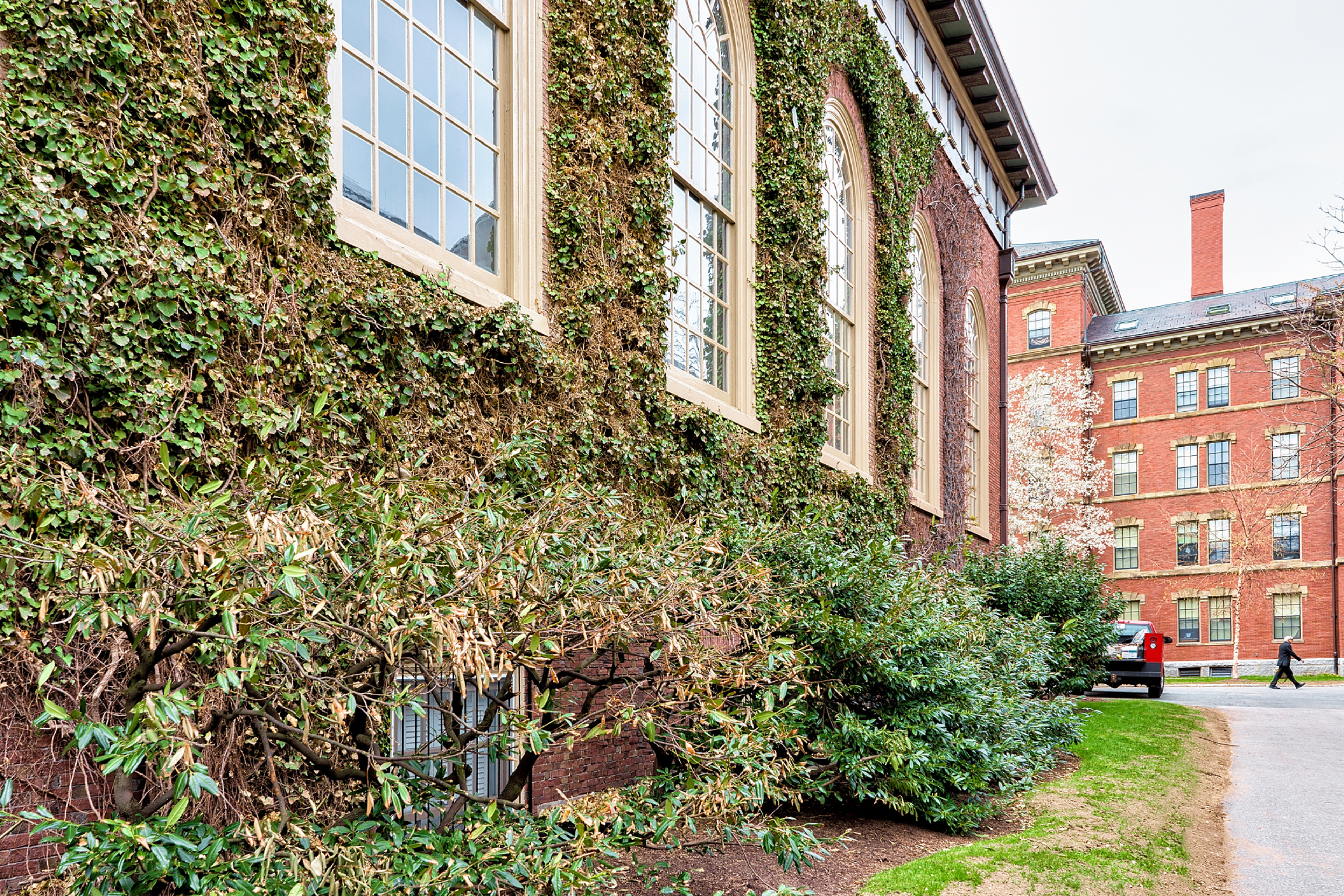
The Ivy League Application Process
Getting into an Ivy League school requires a lot of hard work and dedication. The admissions process is rigorous and varies from school to school, but all of them value academic excellence, extracurricular activities, and personal qualities.
What Do You Need to Get Into an Ivy League School?
Unfortunately, great academics are not enough to get into an Ivy League school. The class profile statistics above show that almost every single student admitted has a stellar GPA and standardized test score and graduated at the top of their class. This brings us to our first prerequisite:
1. You should at least match the average of the most recent entering class.
Focus on what you can control as early as you can. Maintain a 4.0 GPA (or as close to it as you can get) throughout your high school years. Study and take whichever standardized test you'd like, but take it seriously and try to get a great score. Start preparing early so you have enough time to retake it if you don't get your target score the first time. An SAT/ACT tutor can be especially beneficial in helping you secure a top-percentile score.
Read:
- ACT Game Plan: How to Master Every Section and Concept
- Best Free Resources to Prepare for the ACT and SAT
- The ACT vs. SAT: Which to Take and How to Ace Both
So, you're now focusing on your academics, what's next? Well, these schools aren't admitting numbers, they're admitting people.
2. Stand out by having diverse interests.
It honestly doesn't matter what you do as much as how you do it. Ivy League schools want students who will change the world in their respective areas. With this perspective, it's much more important to focus on going deep into your interests than trying to impress the admissions committees with the number or breadth of activities you're involved in. Choose extracurriculars that you are genuinely passionate about and get really good at them. This is related to our next point:
3. Show leadership and initiative.
The AdComs at these schools are trying to pick out students who will go on to be great leaders and do amazing things. If you can show them that you're well on your way, they'll be more likely to give you a chance to do so. Initiative, on the other hand, is a hard thing to have and the schools know that. It's much easier to say you participated in X versus saying you started X, and there are also far fewer people who can make that claim. What they're hoping to find here are the people who will make an impact, both on their campus, and beyond.
See: What Looks Good on College Applications? 6 Tips to Make Your Application Stand Out
4. Show interest in the specific school.
Admissions officers want to admit students who actually want to go to that school. Strategically, they're trying to maximize yield (the % of admitted students who enroll) and retention (the % of students who remain enrolled through graduation) but more importantly, they want students who will make the school better by being there. The caveat is that Ivy League schools are in a position where they can assume most students who get in will probably want to go there. But, you can still make a case for why THAT school, and no other one, is the only one for you. A good way to start is by having a very detailed understanding of what your target school(s) uniquely have to offer that is specific to your interests and goals.
5. Submit a really good application.
Let's say you've done all the things above: You have great grades and a stellar ACT/SAT score, a portfolio of deeply cultivated extracurriculars that show you're passionate about and talented in something, and the leadership/initiative experiences to back it up. You're still not guaranteed to get in; in fact, you're not even close because every other competitive applicant applying also has those things. We say this not to dishearten or dissuade you but rather to emphasize the importance of telling your story in the most powerful way possible. Each part of the application gives you a chance to tell a different part of that story and it's so important to make the most of it. In this next section, we'll go deeper into the application.
The Ivy League Application Components
All eight of the Ivy League schools use the Common App for their first-year applications. The Common App includes:
- Application fee
- High school transcript
- A list of your activities, work, and responsibilities
- Test scores
- Parent/guardian information
- Academic honors and achievements
- Letters of recommendation
- Common App personal essay
- Supplemental, school-specific essay questions
- Interview (if applicable)
Here are the school-specific application requirements and deadlines for the Ivy League.
Brown University
- Application Fee: $75
- Deadlines
- Early Decision: Beginning of November
- Regular Decision: Beginning of January
- Essay Questions (200-250 words)
- Brown's Open Curriculum allows students to explore broadly while also diving deeply into their academic pursuits. Tell us about any academic interests that excite you, and how you might pursue them at Brown.
- Students entering Brown often find that making their home on College Hill naturally invites reflection on where they came from. Share how an aspect of your growing up has inspired or challenged you, and what unique contributions this might allow you to make to the Brown community.
- Brown students care deeply about their work and the world around them. Students find contentment, satisfaction, and meaning in daily interactions and major discoveries. Whether big or small, mundane or spectacular, tell us about something that brings you joy.
- Short-Answer Questions
- What three words best describe you? (3 words)
- What is your most meaningful extracurricular commitment, and what would you like us to know about it? (100 words)
- If you could teach a class on any one thing, whether academic or otherwise, what would it be? (100 words)
- In one sentence, Why Brown? (50 words)
- Letters of Recommendation: 2 Teacher Evaluations, Counselor Recommendation Required
Columbia University
- Application Fee: $85
- Deadlines
- Early Decision: Beginning of November
- Regular Decision: Beginning of January
- Short-Answer Questions
- List a selection of texts, resources and outlets that have contributed to your intellectual development outside of academic courses, including but not limited to books, journals, websites, podcasts, essays, plays, presentations, videos, museums and other content that you enjoy. (100 words or fewer)
- A hallmark of the Columbia experience is being able to learn and thrive in an equitable and inclusive community with a wide range of perspectives. Tell us about an aspect of your own perspective, viewpoint or lived experience that is important to you, and describe how it has shaped the way you would learn from and contribute to Columbia's diverse and collaborative community. (150 words or fewer)
- In college/university, students are often challenged in ways that they could not predict or anticipate. It is important to us, therefore, to understand an applicant's ability to navigate through adversity. Please describe a barrier or obstacle you have faced and discuss the personal qualities, skills or insights you have developed as a result. (150 words or fewer)
- Why are you interested in attending Columbia University? We encourage you to consider the aspect(s) that you find unique and compelling about Columbia. (150 words or fewer)
- What attracts you to your preferred areas of study at Columbia College or Columbia Engineering? (150 words or fewer)
- Letters of Recommendation: 2 Teacher Evaluations, Counselor Recommendation Required
Cornell University
- Application Fee: $80
- Deadlines
- Early Decision: Beginning of November
- Regular Decision: Beginning of January
- Essay Questions
- In the aftermath of the U.S. Civil War, Ezra Cornell wrote, "I would found an institution where any person can find instruction in any study." For over 150 years, Cornell University has remained deeply committed to Ezra’s vision. Explain how your life experiences will help inform your contributions to a learning community devoted to “... any person … any study.” We encourage you to think broadly about your life experiences, including how local (e.g., family, school, neighborhood) or global communities you’ve been part of have helped shape your perspective. (350 word limit)
- Short-Answer Questions
- College-specific; see here for the full list
- Letters of Recommendation: 2 Teacher Evaluations, Counselor Recommendation Required
Dartmouth College
- Application Fee: $80
- Deadlines
- Early Decision: Beginning of November
- Regular Decision: Beginning of January
- Essay Questions
- Choose one of the following (250 words or fewer)
- There is a Quaker saying: Let your life speak. Describe the environment in which you were raised and the impact it has had on the person you are today.
- "Be yourself," Oscar Wilde advised. "Everyone else is taken." Introduce yourself.
- Choose one of the following (250 words or fewer)
- What excites you?
- Labor leader and civil rights activist Dolores Huerta recommended a life of purpose. "We must use our lives to make the world a better place to live, not just to acquire things," she said. "That is what we are put on the earth for." In what ways do you hope to make—or are you already making—an impact? Why? How?
- Dr. Seuss, aka Theodor Geisel of Dartmouth's Class of 1925, wrote, "Think and wonder. Wonder and think." As you wonder and think, what's on your mind?
- Celebrate your nerdy side.
- "It's not easy being green…" was the frequent refrain of Kermit the Frog. How has difference been a part of your life, and how have you embraced it as part of your identity and outlook?
- As noted in the College's mission statement, "Dartmouth educates the most promising students and prepares them for a lifetime of learning and of responsible leadership…" Promise and potential are important aspects of the assessment of any college application, but they can be elusive qualities to capture. Highlight your potential and promise for us; what would you like us to know about you?
- Choose one of the following (250 words or fewer)
- Short-Answer Questions
- Dartmouth celebrates the ways in which its profound sense of place informs its profound sense of purpose. As you seek admission to Dartmouth's Class of 2028, what aspects of the College's academic program, community, and/or campus environment attract your interest? In short, why Dartmouth? (100 words or fewer)
- Letters of Recommendation: 2 Teacher Evaluations, Counselor Recommendation Required
Harvard University
- Application Fee: $85
- Deadlines
- Early Decision: Beginning of November
- Regular Decision: Beginning of January
- Short-Answer Questions (200 words)
- Harvard has long recognized the importance of enrolling a diverse student body. How will the life experiences that shape who you are today enable you to contribute to Harvard?
- Briefly describe an intellectual experience that was important to you.
- Briefly describe any of your extracurricular activities, employment experience, travel, or family responsibilities that have shaped who you are.
- How do you hope to use your Harvard education in the future?
- Top 3 things your roommates might like to know about you.
- Letters of Recommendation: 2 Teacher Evaluations, Counselor Recommendation Required
Princeton University
- Application Fee: $70
- Deadlines
- Early Decision: Beginning of November
- Regular Decision: Beginning of January
- Essay Questions
- Princeton values community and encourages students, faculty, staff and leadership to engage in respectful conversations that can expand their perspectives and challenge their ideas and beliefs. As a prospective member of this community, reflect on how your lived experiences will impact the conversations you will have in the classroom, the dining hall or other campus spaces. What lessons have you learned in life thus far? What will your classmates learn from you? In short, how has your lived experience shaped you? (Please respond in 500 words or fewer.)
- Princeton has a longstanding commitment to understanding our responsibility to society through service and civic engagement. How does your own story intersect with these ideals? (Please respond in 250 words or fewer.)
- Short-Answer Questions (50 words or fewer)
- What is a new skill you would like to learn in college?
- What brings you joy?
- What song represents the soundtrack of your life at this moment?
- Degree-Specific Questions
- For AB Degree Applicants or Undecided: As a research institution that also prides itself on its liberal arts curriculum, Princeton allows students to explore areas across the humanities and the arts, the natural sciences, and the social sciences. What academic areas most pique your curiosity, and how do the programs offered at Princeton suit your particular interests? (Please respond in 250 words or fewer.)
- For BSE Degree Applicants: Please describe why you are interested in studying engineering at Princeton. Include any of your experiences in or exposure to engineering, and how you think the programs offered at the University suit your particular interests. (Please respond in 250 words or fewer.)
- Graded Written Paper: Princeton also requires that students submit a graded written paper with their application so the AdCom can see the student's work in an academic setting. See more information on the requirement here.
- Letters of Recommendation: 2 Teacher Evaluations, Counselor Recommendation Required
University of Pennsylvania
- Application Fee: $75
- Deadlines
- Early Decision: Beginning of November
- Regular Decision: Beginning of January
- Essay Questions
- School-specific, see the prompt for your target school here
- Short-Answer Questions (150-200 words)
- Write a short thank-you note to someone you have not yet thanked and would like to acknowledge. (We encourage you to share this note with that person, if possible, and reflect on the experience!)
- How will you explore community at Penn? Consider how Penn will help shape your perspective, and how your experiences and perspective will help shape Penn.
- Letters of Recommendation: 1 Teacher Evaluation, Counselor Recommendation Required
Yale University
- Application Fee: $80
- Deadlines
- Early Decision: Beginning of November
- Regular Decision: Beginning of January
- Essay Questions
- Choose one of the following prompts (400 words)
- Reflect on a time you discussed an issue important to you with someone holding an opposing view. Why did you find the experience meaningful?
- Reflect on your membership in a community to which you feel connected. Why is this community meaningful to you? You may define community however you like.
- Reflect on an element of your personal experience that you feel will enrich your college. How has it shaped you?
- Choose one of the following prompts (400 words)
- Short-Answer Questions
- Students at Yale have time to explore their academic interests before committing to one or more major fields of study. Many students either modify their original academic direction or change their minds entirely. As of this moment, what academic areas seem to fit your interests or goals most comfortably? Please indicate up to three from the list provided.
- Tell us about a topic or idea that excites you and is related to one or more academic areas you selected above. Why are you drawn to it? (200 words or fewer)
- What is it about Yale that has led you to apply? (125 words or fewer)
- What inspires you? (200 characters)
- If you could teach any college course, write a book, or create an original piece of art of any kind, what would it be? (200 characters)
- Other than a family member, who is someone who has had a significant influence on you? What has been the impact of their influence? (200 characters)
- What is something about you that is not included anywhere else in your application? (200 characters)
- Letters of Recommendation: 2 Teacher Evaluations, Counselor Recommendation Required
Ivy League Application Interviews
One important aspect of the Ivy League admission process is the interview. Some schools require an interview as part of the application process, while others offer it as an optional opportunity for students to showcase their personality and interests. It's important to prepare for the interview by researching the school and practicing common interview questions. Here are the interview requirements of the Ivy League schools:
- Brown University: Video portfolio submission recommended
- Dartmouth College: Interview by invitation only
- Harvard University: Interview by invitation only
- Princeton University: Interview by invitation only
- University of Pennsylvania: Interview by invitation only
- Yale University: Recommended
Key Takeaways
- There are 8 Ivy League schools, all private, highly selective universities in the northeastern U.S. known for academic excellence and elite alumni networks.
- Acceptance rates are extremely low, typically between 3% and 7%, making strong academics, leadership, and compelling applications essential for admission.
- Ivy Plus and Public Ivy schools, like Stanford, MIT, UC Berkeley, and Michigan, offer similarly rigorous academics and prestige outside the formal Ivy League.
- Ivy League graduates gain access to powerful career networks, top employers, and advanced study opportunities, often giving them an edge in competitive fields.
- Generous financial aid is widely available, with most Ivy League schools meeting 100% of demonstrated need, often without student loans.
Get Expert Help on Your College Applications
Working with an admissions coach can vastly improve your chances of admission. An expert will be able to evaluate your candidacy objectively and provide real feedback grounded in experience helping tons of other students get into their dream schools. Here are some popular college admissions coaches, browse all of them here.
Read these articles for additional application insight:
- Writing the College Essay: Dumplings, Dogs, the Letter S, and the 5-Step Process That Makes Sense of All the BS
- How to Write a College Application Resume
- How to Pick the Best College for You
- What AP Test Scores Do Colleges Accept?
- Top Questions to Ask a College Admissions Officer
- How to Succeed During Your College Years
Ivy League FAQs
Are there 8 or 12 Ivy League schools?
- There are 8 Ivy League schools, not 12. The Ivy League is a group of eight private colleges in the northeastern United States known for their academic excellence and historical significance.
Why is Stanford not an Ivy?
- Stanford is not part of the Ivy League because the Ivy League is an athletic conference formed in 1954 among eight northeastern schools. While Stanford is academically on par, or even superior in some rankings ,it is located in California and was never part of that original athletic grouping.
What is the most prestigious Ivy League school?
- Harvard University is often considered the most prestigious Ivy League school due to its global reputation, academic influence, and extensive alumni network. However, rankings vary, and schools like Princeton and Yale are also frequently at the top.
Why are they called Ivy League?
- The term “Ivy League” originally referred to the ivy-covered buildings found on the campuses of these older universities. It became an official name in 1954 with the formation of the Ivy League athletic conference.
Browse hundreds of expert coaches
Leland coaches have helped thousands of people achieve their goals. A dedicated mentor can make all the difference.












